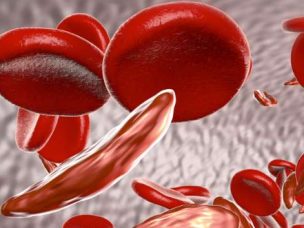Sickle Cell Smart
Sickle Cell Disease and Reproductive Health
There are known reproductive health risks associated with sickle cell disease (SCD). However, the medical literature on this subject is limited. This report, published in the British Journal of Haematology, sought to summarize what is known about the reproductive health risks faced by women with SCD. Its areas of focus included contraception, fertility, hormone therapies, menstruation, and...
Sickle Cell Disease Care for Young Adults and Adolescents
Patients with sickle cell disease (SCD) experience a higher risk of morbidity and mortality during the transition from adolescence to adulthood. This study, published in the Journal of Pediatric Hematology/Oncology, analyzed the factors associated with this transition. A total of 59 study participants were recruited from a large hospital system and the community. The participants included...
HSCT and Alemtuzumab for Sickle Cell Disease
Alemtuzumab is a monoclonal antibody that targets cell surface antigen CD52 on lymphocytes. It has been used to treat hematologic malignancies and has been incorporated into hematopoietic stem cell transplant (HSCT) conditioning regimens. However, few studies have evaluated the pharmacology of alemtuzumab in adults with sickle cell disease (SCD). This study, published in Pharmacotherapy: The Journal...
COVID-19 Outcomes and Sickle Cell Disease
Due to the developing nature of the ongoing COVID-19 pandemic, the effect of other health conditions on COVID-19 outcomes is not yet clear. This study, published in Blood Advances, identified predictors of outcomes and survival in patients with COVID-19 and sickle cell disease. Data from patients in four COVID-19 epicenters were used. Patients had a median...
Educating Doctors on Sickle Cell Disease
Despite sickle cell disease being the most common autosomal recessive genetic disorder worldwide, physicians tend to lack a complete understanding of the disease’s morbidity and mortality. This lack of knowledge can lead to healthcare disparities. This study, published in MedEdPORTAL, examines the impact of simulation-based curriculum on physician understanding of sickle cell disease. The researchers created...
Curing Sickle Cell Disease in a Murine Model
Hematopoietic stem cell transplant (HSCT) remains the most effective way to cure sickle cell disease. However, its use is still limited by several challenges, including a lack of suitable donors, the risk of graft-versus-host disease, and therapy-related toxicity. This study, published in Bone Marrow Transplantation, sought to determine the safety and efficacy of using donor-derived anti-3rd...
Improving Participation in Sickle Cell Disease Studies
With sickle cell disease (SCD) predominately affecting people of African descent, understanding how to improve SCD outcomes is crucial to rectifying health disparities. The National Heart and Lung Association funded several centers to participate in the Sickle Cell Disease Implementation Consortium. This study, published in the Journal of Immigrant and Minority Health, analyzed these centers’ strategies...
More Medical News












